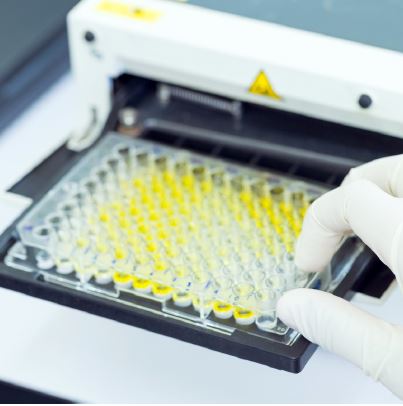|
New Tomato brown rugose fruit virus (ToBRFV) ELISA test from Agdia now available for evaluation
USA
November 4, 2020

Agdia, Inc. (Elkhart, IN) has announced availability of evaluation prototypes for their new Tomato brown rugose fruit virus ELISA, which is slated for full commercialization in December 2020. The ELISA is the first in a suite of three ToBRFV diagnostic assays to be launched by Agdia in the next six months. A field-deployable, rapid isothermal molecular test to detect ToBRFV is also expected to be commercialized early in the new year, followed by an ImmunoStrip® lateral flow device in Q1 or Q2 of 2021.
Agdia’s ToBRFV ELISA has been tested against tomato and pepper seeds and is fully compatible with the PBS-based seed extraction method detailed in ISF’s Detection of Infectious Tobamoviruses in Tomato & Pepper Seed by ISHI-Veg. This test has also been validated against foliar tissue samples of representative varieties of tomato, pepper and eggplant.
Very low cross-reactivity has been observed in this assay against high titer Tobacco mosaic virus and Tomato mosaic virus (ToMV) samples. Furthermore, no cross-reactivity was observed with high titer samples from other Tobamoviruses, including Cucumber green mottle mosaic virus (CGMMV) and Tobacco mild green mosaic virus (TMGMV). More detailed validation data is available from Agdia upon request.
For more information about prototype evaluations, contact Agdia, Inc. at info@agdia.com.
Tomato brown rugose fruit virus is a resistance-breaking Tobamovirus that causes severe economic losses in solanaceous crops, including Solanum lycopersicum (tomato) and Capsicum spp. (pepper). It causes symptoms typical of Tobamoviruses that include mosaic and chlorosis on the leaves and discoloration and deformation of the fruit. These symptoms decrease yield and render fruit unmarketable.
Tomato and pepper seeds, transplants and fruits from certain countries are subject to a USDA-APHIS Federal Import Order in the United States. Tomato brown rugose fruit virus has also been classified as a quarantine pathogen by EPPO (European and Mediterranean Plant Protection Organization).
More news from: Agdia, Inc.
Website: http://www.agdia.com Published: November 4, 2020 |
|
The news item on this page is copyright by the organization where it originated
Fair use notice |